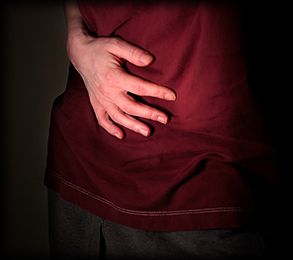Treating the whole body
Stress-related symptoms in the GI tract vary greatly from one patient to the next, and treatment can vary as well. For example, one person with GERD might describe an occasional, mild burning sensation in the chest, while another complains of excruciating discomfort night after night. As the severity of symptoms varies, so should the therapies, medications, self-help strategies, or even surgeries used to relieve them.
Many patients have mild symptoms that respond quickly to changes in diet or medications. If symptoms do not improve, your clinician may ask you more questions about your medical history and perform some diagnostic tests to rule out a physical abnormality, infection, or cancer. For some people, symptoms improve as soon as a serious diagnosis has been ruled out (another example of how emotional stress affects the gut!). Your doctor may also recommend symptom-specific medications. But sometimes these treatments are not enough. As symptoms become more severe, so does the likelihood that a patient is experiencing some sort of psychological distress.
Often, patients with moderate to severe symptoms, particularly those whose symptoms arise from stressful circumstances, stand to benefit from psychological treatments such as cognitive behavioral therapy, relaxation techniques, and hypnosis. Some patients are reluctant to accept the role of psychosocial factors in their illness. But it’s important to know that emotions cause real, chemical and physical responses in the body that can result in pain and discomfort. Behavioral therapy and stress reduction treatments do not directly reduce pain or improve symptoms in the way that drugs do. Rather, the goal is to reduce anxiety, encourage healthy behaviors, and help patients cope with the pain and discomfort of their condition.













